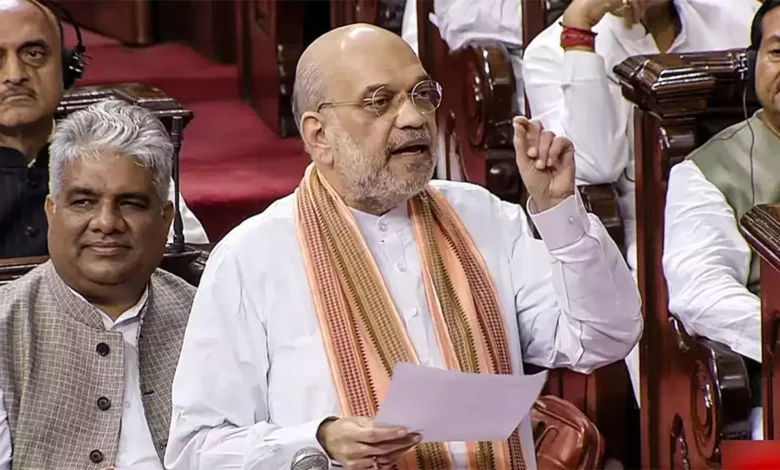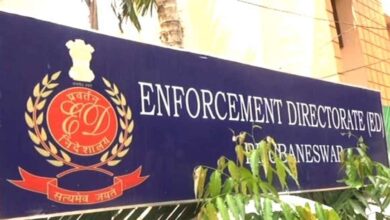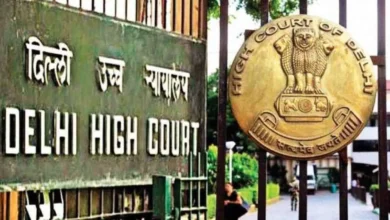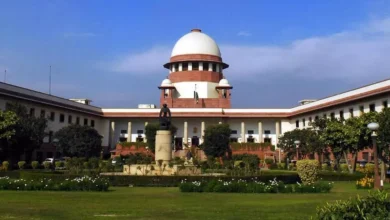Amit Shah brings in 3 bills for a complete overhaul in the Indian Criminal Law
Amit Shah brought in 3 bills to replace the Indian Penal Code, Criminal Procedure Code and Indian Evidence Act.

In a historic moment, Union Home Minister Amit Shah has today in the Lok Sabha moved to repeal and replace the Indian Penal Code (IPC), Criminal Procedure Code (CrPC) and Indian Evidence Act with the three bills that he introduced. The IPC will be replaced by Bhartiya Nyaya Sanhita, 2023, the Criminal Procedure Code will be replaced by Bhartiya Nagrik Suraksha Sanhita, 2023 and the Indian Evidence Act will be replaced by Bhartiya Sakshya Bill, 2023.
The new Bhartiya Nyaya Sanhita, 2023 will now have 356 sections compared to the 511 sections of the IPC, out of which 175 sections have been amended. The Bhartiya Sakshya Bill will now have 170 sections as compared to the 167 sections in the Indian Evidence Act, out of which 23 sections have been amended. These new laws have now been sent to the parliamentary standing committee for further approval.
“From August 16, the road from 75 to 100 years of Independence will begin. The PM had vowed to end the mindset of slavery. We will finish IPC (1857), CrPC (1858), Indian Evidence Act (1872) – which were made by the British. We will bring three new laws in their place to ensure the protection of rights. It will aim to give justice not punishment,” Amit Shah said, adding that the government will end “475 signs of mentality of slavery in criminal laws”. “People are afraid of going to courts, they think going to courts itself is a punishment,” added Shah.
Amit Shah said that the objective is to encourage people to stop crime and that will happen when people start feeling that going to courts is not a punishment in itself. He also added that the new laws will now be centred around the people and for the people and not centred around the governments and administration. He said that the government went through a long process to create these new laws. He also referred to when PM Narendra Modi told all the ministers that all British Era laws should be discussed, analysed and replaced with laws which are modern, in accordance to the current circumstances and are for the benefit of the people of India.
The controversial sedition law (Section 124 A of IPC) has been repealed completely and changed to Acts endangering sovereignty, unity, and Integrity of India (Section 150), a copy of the Bill shows.
“Whoever, purposely or knowingly, by words, either spoken or written, or by signs, or by visible representation, or by electronic communication or by use of financial mean, or otherwise, excites or attempts to excite, secession or armed rebellion or subversive activities, or encourages feelings of separatist activities or endangers sovereignty or unity and integrity of India; or indulges in or commits any such act shall be punished with imprisonment for life or with imprisonment which may extend to seven years and shall also be liable to fine,” Section 150 of the new Bill says. Amit Shah said the bill had stringent punishment for organised crime. There is a provision for attachment of property of proclaimed offenders.
Shah said cases filed under sections that provide for seven years or a greater jail term would require visit by forensic teams to the crime scene. “This will reduce the chances of acquittal of the culprits,” Shah said. He also said videography would be mandatory while collecting evidence. Court proceedings will be digitised and trials will be done through video conferencing. Before 2027, all the courts of the country will be computerised, Shah said.
The Union Minister said videography of victim’s statement in sexual violence case and statement in sexual harassment case would be made mandatory. “Crime against women and children was given 302nd position (in prevalent laws) despite that no other crime can be more heinous. We are changing this approach, and the first chapter will now be crime against women and children,” Shah further said. The offence of committing rape of a minor under 12 years of age will also now be liable for a maximum punishment of life imprisonment and with fine or with death.
Under the new bill, charge sheet will have to be filed within 90 days from lodging of complaint. Investigation will have to be completed within 180 days in all cases. The judge will have to give his verdict within 30 days of framing of charges.
The Centre had in March 2020 constituted a Criminal Law Reforms Committee to make suggestions to revise IPC, CrPC and the Indian Evidence Act 1872. The Committee was headed by Professor Dr Ranbir Singh, the then Vice Chancellor of National Law University Delhi and consisted of Professor Dr GS Bajpai, the then Registrar of NLU-D, Professor Dr Balraj Chauhan the VC of DNLU, Senior Advocate Mahesh Jethmalani, and GP Thareja, former District and Sessions Judge, Delhi.



